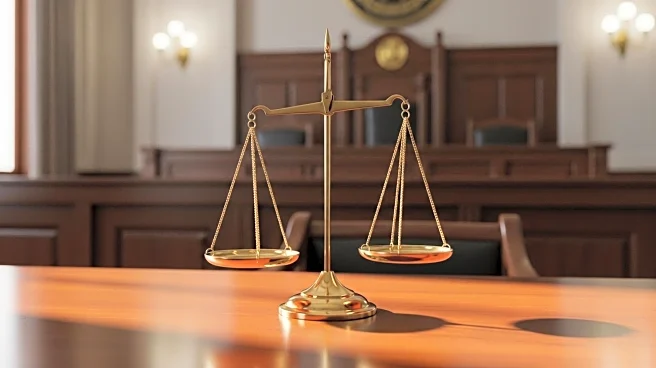What's Happening?
The U.S. Supreme Court has ruled that Lisa Cook can continue serving as a Federal Reserve governor while legal proceedings regarding her potential dismissal unfold. President Trump has sought to remove Cook, citing allegations of mortgage fraud, which she denies. The court's decision to hear arguments in January means Cook will remain in her position, allowing her to participate in at least two more votes on the Federal Reserve's interest rate decisions. Cook, appointed by President Biden, argues that her removal is politically motivated due to her monetary policy stance. The case marks a significant legal battle over the independence of the Federal Reserve, as no president has previously attempted to remove a governor without clear cause.
Why It's Important?
This legal battle underscores the tension between the executive branch and the Federal Reserve, highlighting issues of political interference in monetary policy. The outcome could set a precedent for the independence of the Federal Reserve governors, impacting how future administrations interact with the central bank. If President Trump succeeds, it may embolden future presidents to exert more influence over the Fed, potentially affecting its ability to make decisions based solely on economic data. The case also raises questions about the legal grounds for removing a Fed governor, as the term 'for cause' remains undefined. The decision will be closely watched by financial markets and policymakers, as it could influence the Fed's future policy directions.
What's Next?
The Supreme Court is set to hear oral arguments in January, which will determine the legality of President Trump's attempt to remove Lisa Cook. Until then, Cook will continue to serve on the Federal Reserve Board, participating in key decisions regarding interest rates. The outcome of the case could have significant implications for the Federal Reserve's independence and the broader financial system. Stakeholders, including financial institutions and policymakers, will be monitoring the situation closely, as the decision could influence future interactions between the executive branch and the Federal Reserve.
Beyond the Headlines
The case highlights broader concerns about the politicization of independent institutions in the U.S. government. The Federal Reserve's ability to operate free from political pressure is crucial for maintaining economic stability and investor confidence. This legal dispute may prompt discussions about clarifying the legal framework governing the removal of Federal Reserve governors, potentially leading to legislative changes. Additionally, the case could influence public perception of the Federal Reserve's role and its relationship with the executive branch, impacting its credibility and effectiveness in managing the economy.









